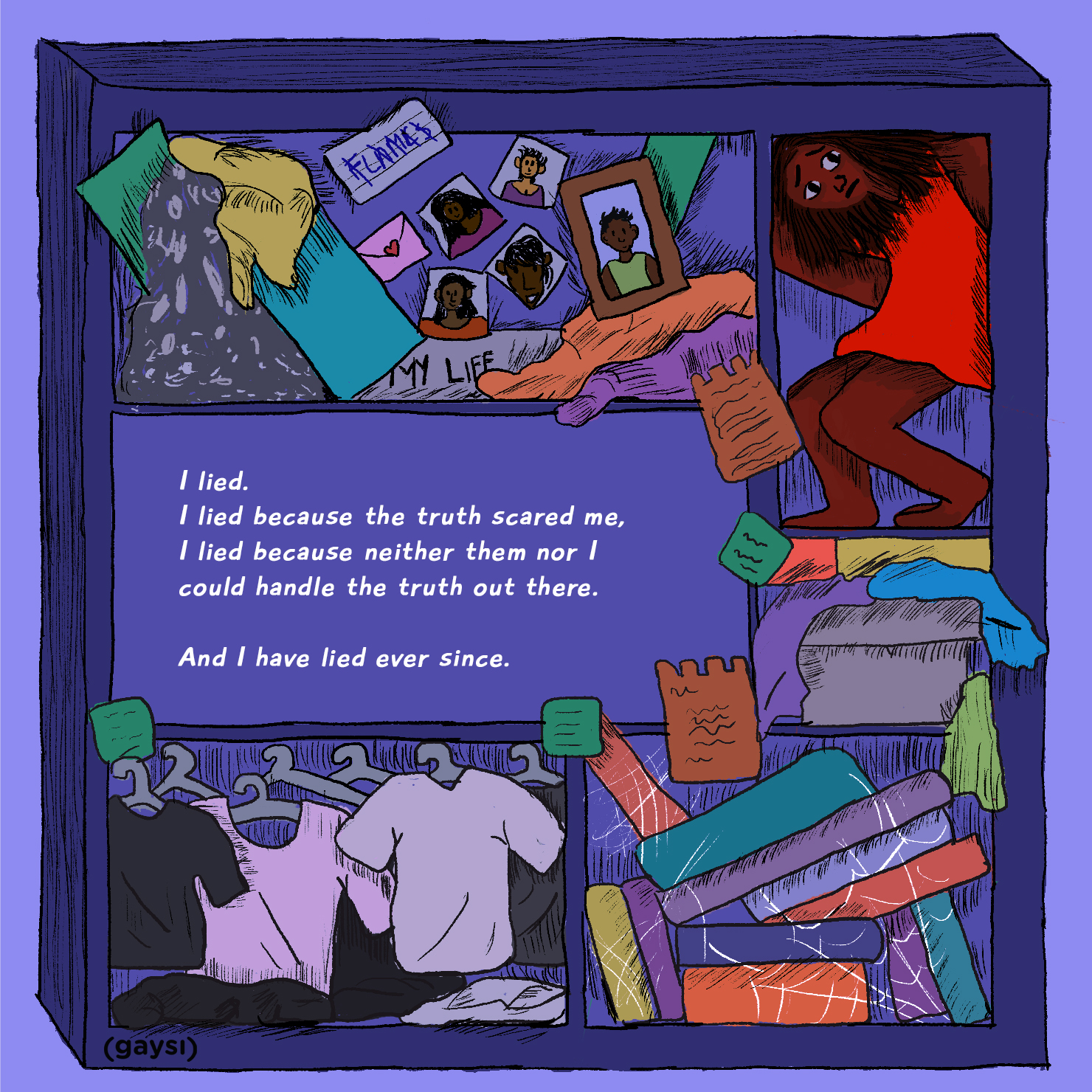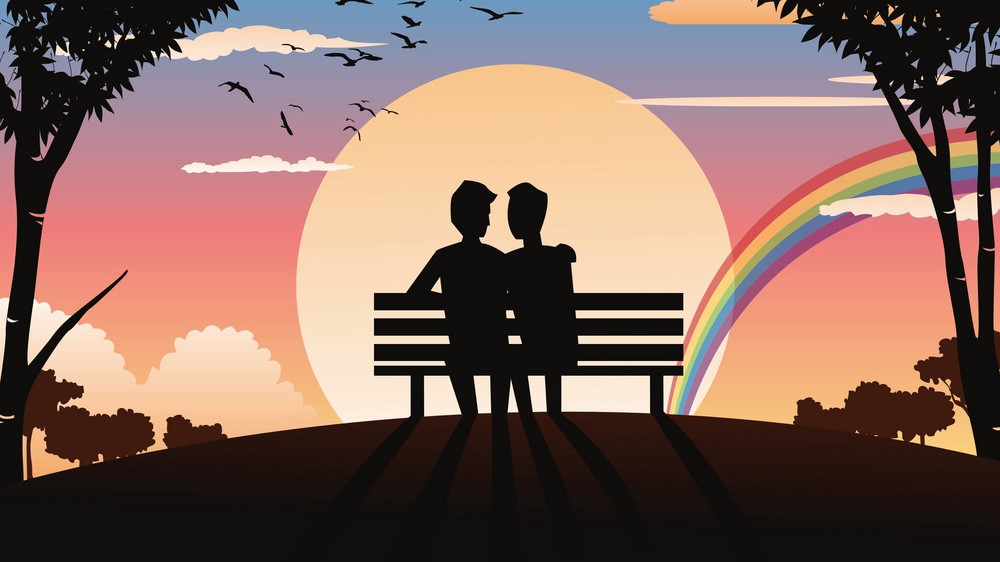By Evi Tsakali,
If you have already read the first part of the interview, you must have realized that my friend’s insights on the gay community come from experience, and – most importantly – from the heart… and I wouldn’t want to limit that to only one article. Here is how our conversation escalated:
- Name 5 myths that you would like to bust regarding the community
First of all, this is essential; not all queer people are fem, not every queer person wears colorful clothes or has an eccentric persona. Not that being feminine is something bad, it’s just that not all queer people are that way. A second myth revolves around the idea that gay people are more modern or edgy or have a taste for modern… For example, I am more of an old soul, I would say I am not that much of a tech guy or a modern art freak. Of course, being gay can be relevant to being modern, and it makes sense because the LGBTQ movement is recent, queer rights are still being conquered, and it is reasonablefor gay people to keep up with current affairs and modern tendencies; it is reasonable but not necessary, and I know many people that are gay but old fashioned nonetheless. Another myth I would like to bust is that we are not all politically and ideologically on the same page. Certainly, there is a predominance of the left, but we are not all leftists, and being queer does not necessarily make you a leftist, or a voter of a left-wing party. Of course, it may seem strange seeing a queer person voting or being part of an extremely conservative or far-right party, but it can happen; we can argue on whether this is problematic or not, but the fact is that there are queer people, for example gay men in France, that tend to be rather right-wing, so it is a myth that being gay comes with certain political views. Another myth that I have already busted answering your first question (cf. first part of the interview) is about tolerance and acceptance. No, the gay community is not only comprised of accepting and tolerant individuals who accept and love eachother; there is discrimination within the community, there can be hostility as well. So no, it is not an idealized community of people, it can get better, people in general can do better, and the gay community is not an exception to the general population. In addition, a myth that I would like to bust is about queer people having a specific appearance or dressing style. There is a tendency for many people in the community to engage in the fields of art, fashion, modelling, so there is a tendency towards the respective products and means of expression, but -no- not all gay people are the ones you see at the Met Gala or on TV shows, people can dress in the most conventional or casual way, and still be queer. Again, being queer does not come with a certain fashion style or dressing up in a certain way and putting makeup on. And vice versa, people who wear makeup or paint their nails are not necessarily queer. A final myth that I would like to bust is that queer people are not just looking for sex, or oversexualize people; For sure there is this aspect of sexuality coming with a certain kind of ideology that some communities tend to adhere to, but still, there are a lot of people who are into relationships, who just like to date, who are monogamous, so it’s untrue what people may think about queer people “f-ing around”.

- How does a gay guy find his match?
This is a very interesting question. Unfortunately, I must say that it is a fact that gay people have a tendency to find their match through apps. This has a simple explanation, first of all that it is more difficult to find other gay people, because they are fewer than straight people, and – due to a certain presumption of heterosexuality – they are difficult to approach, since you cannot be sure on whether they are gay or not until they say so. And of course it is difficult because – let’s be honest – establishing full equality and acceptance of queer people is still a far step ahead, so that pushes gay people to date through apps. Personally, I think that it is hard to find your match through apps. The dating culture that revolves around apps like Tinder or – even worse – Grindr is a consumer-based culture; it is not about finding YOUR match, but about having matches. It is logical if you think about it, since the corporations behind those applications want to keep them running; they don’t want you to close the app, they want you to keep matching. They create and promote the need to date and never match; there is an abundance of offer, and hence everyone thinks “I can find better”. Moreover, social media gives you this false idea of distance, that you are an anonymous person talking to another anonymous person, this screen “barrier” that makes it impersonal, so you have the illusion of more freedom than in real-life contact. Consequently, personally -and having tried thoroughly all the apps- I prefer to date the old-fashioned way, but it is not that easy. That being said, I must admit that I found – through apps – a very special being, very dear to me, and funnily enough, I got to taste what love feels like through an app, so I guess I have to give them that credit.
- Did you ever feel that you had to lose yourself to fit in the community?
I think that, yes, at least I felt that I had to lose a bit of myself to fit in. As I have already told you, the community tends to be a rather harsh place when it comes to appearance, beauty standards, ideology, mindset that you have to have in order to be accepted, especially by certain parts of the community; there is a certain lifestyle that you should be able to adhere to. It might seem contradictory to one of the myths I wanted to bust, because not everyone in the community is that way. It is a myth and a reality at the same time; there is this hard core of the community that is quite intense and relates to a certain lifestyle, choices and values, that if you don’t adhere to, it can get quite complicated. For example, personally, I am not a leftist, as I said. It can get a bit complicated, having a political discussion with fellow members of the community, because many of them – if not most of them – can be politically engaged, which creates a point of friction. In terms of appearance, yes, in a certain way you have to make yourself desirable according to the standards of the community in order to date and socialize easier, and to fit in a certain culture, a certain sub-current of the community. I tried to keep myself intact, but the truth is that sometimes you have to let things aside and compromise in order to fit in.

- What would you advise a closeted person?
Honestly, I would advise a closeted person to come out. I know it may seem self-explanatory, but I would advise them to come out for themselves. There are two main arguments that convinced me that I needed to come out and I want to share them with you. The first one, made my youngself , a scared teenager, realise that being gay wasn’t bad. All these closeted people out there who think that being queer is bad, think about history. If you study some history you will see that queerness and gender identities fluctuate through time, and the views we’ve had on these questions are purely relative; there are only a matter of era and community. No more and no less; there is nothing inherently good or bad with being straight or gay, asexual or pansexual, non-binary or trans. There is nothing transcending, no natural way of things. Secondly, for the closeted people, I advise you to come out because you have – at least from what we know – only one life; one single chance to live, to live the way you want to, to live free, to do and try the things you want, to be honest with yourselves and the people around you. So if you don’t do it now, you will lose this chance, nobody else will do it for you, you will have lived a life that you didn’t want to live, and there will be no second chance. Coming out might be difficult, harsh, coming out may come at cost, but it is liberating, and – after a certain point – even if it lasts for a bit, it gets better; it seems a bit like a band aid that you just have to take off; it is going to hurt in the beginning, but then it will be liberating.
- What would you do differently if you started all over again?
This is a tough question. What would I do differently… I would come out earlier. I would have been firmer in what I thought and believed, because first I came out to my mother and I was full of doubts, I said that maybe it was a phase. And she was absolutely certain that it was nothing more than a phase. I believe it would have taken her less time and effort to accept it if there were no doubts lingering from the start. I would also come out to my high school friends and try to pursue my sexuality and expose this part of me earlier and maybe I would come across some unpleasant surprises but overall I would feel sooner how it is to be free, to express who you are, and maybe this would have given me a healthier or more peaceful personal life, a real blessing; I envy in a good way gay people who have been lucky enough to experience that, and I admire it. Furthermore, at this point, I think that I would use the apps less; although – and I will paraphrase Cavafy here – the apps didn’t fool me, they gave me the great journey. Through the apps I encountered lots of different people, I got to meet the community, I got to interact, to debate, exchange and change my views; I got to live rejection, toxicity and now I know better how to detect these things and face them; I’ve seen scamming, I got to face my emotions again and again… but I also found love. Some of the people I’ve met through these apps are my friends now, and I treasure them, I think highly of them… so maybe I wouldn’t pass this match time in the apps, although I don’t think I regret it.
I would like to sincerely thank him for his trust, his candor and the time (something that we did not have in abundance at the time of the interview) that he dedicated to this effort to shed light on aspects of the issue that are not discussed enough, and for him to speak his truth (which I’ve always believed he deserves). I wish him to live free, to be bold and firm in what he believes, and to taste love (which he certainly will)…




